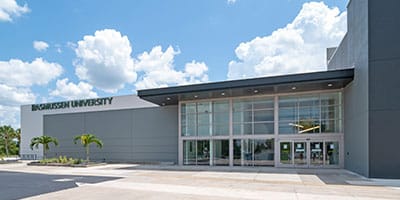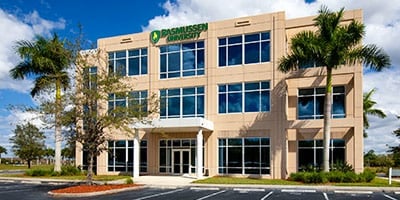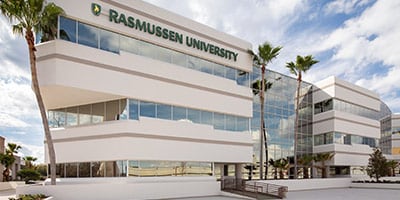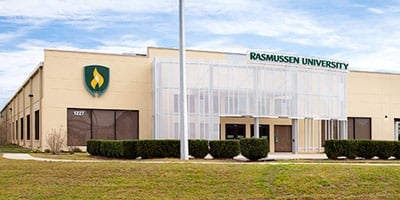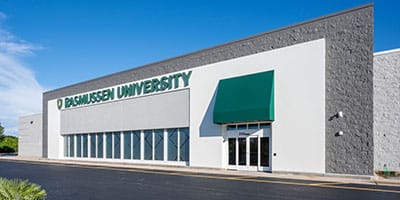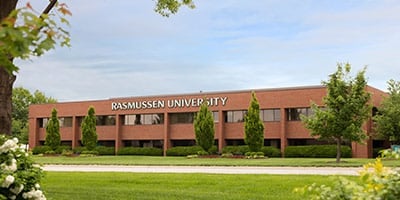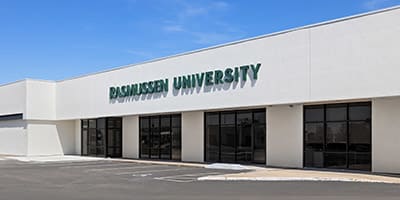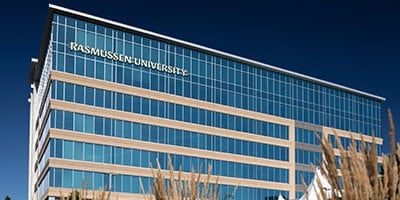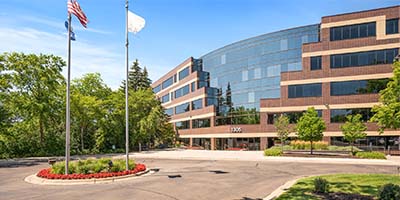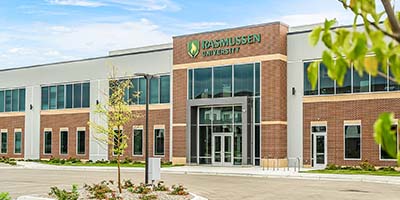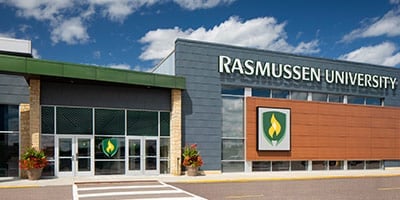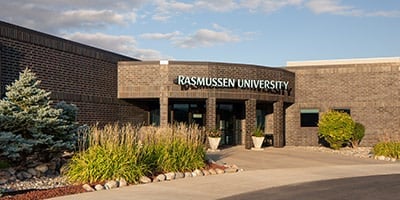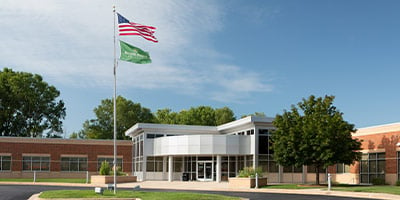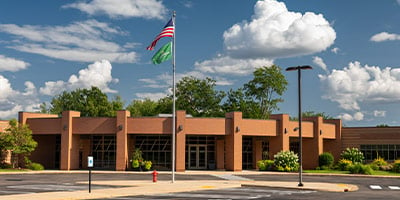
Bachelor of Science in Nursing (BSN)
Bachelor's Degree
- Next Start Dates
- January 06, 2025
- February 12, 2025
Pursue a BSN Degree Designed for Every Nursing Student
You have the passion to pursue nursing—as a national leader in nursing education, we’ll give you the support to earn your BSN degree. In your online and on-campus Nursing courses, you’ll work alongside experienced faculty and motivated peers with the same goal: a faster timeline to becoming a registered nurse (RN) with a BSN degree.
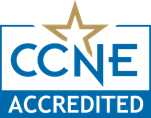 No matter where you’re starting, our CCNE-accredited1 BSN program is designed to help every nurse at every level. Choose your entry track:
No matter where you’re starting, our CCNE-accredited1 BSN program is designed to help every nurse at every level. Choose your entry track:
- BSN Standard Degree: students who haven’t yet earned a nursing diploma or degree and finish in as few as 33 months2
- Accelerated BSN Second Degree: students who already hold a Bachelor’s degree can switch to nursing and finish in as few as 18 months2
- RN to BSN Program: registered nurses interested in earning their online BSN degree in as few as 12–18 months2
At Rasmussen, there are no confusing admissions requirements, rubrics or hidden entrance criteria—we’ll help you prep everything you need and there is no need to apply twice. With eight start dates a year, you can get started soon on your Bachelor’s degree. Once you’ve successfully completed your admissions requirements, you’re admitted directly into the BSN program—there is no need to apply twice.
Learn More at a Nursing Information Session
On This Page:
What Types of Nursing Classes Will I Take?
In the Bachelor of Science in Nursing program, you’ll take online and on-campus courses, as well as participate in on-site clinicals. As a BSN student, you’ll collaborate with experienced nursing faculty and other BSN students in state-of-the-art simulation centers and updated labs. How small are our small classes? Our average BSN class size is around 23 students. You’ll feel prepared for the NCLEX-RN®3 exam and be on your way to becoming a confident RN.
-
Professional Nursing Skills II
- Discover higher-level nursing skills for diverse patients across the lifespan
- Learn to care for patients with respiratory, gastrointestinal, hematological and fluid balance disorders
- Practice skills during an on-campus, supervised lab setting, including newborn and pediatric nursing care
-
Integration of Genetics and Genomics into Ethical Nursing Practice
- Study multidimensional components of genetics and genomics in nursing practice
- Examine influences of legal and governmental policies on ethical advocacy for at-risk patients and populations
- Design evidence-based plan for care inclusive of findings from a focused genetic and genomic assessment
-
Emerging Healthcare Technologies and Innovation
- Compare strategies to integrate principles of quality and safety with innovative patient care technology
- Explore the numerous roles of the nurse informaticist, including social, legal and ethical components
- Use technology to inform data-driven decisions and integrate into healthcare based on technology life cycle
-
Transition to Practice
- Integrate components of nursing leadership to promote quality improvement and safety
- Collaborate within professional nursing teams to design innovative solutions
- Apply knowledge and skills in healthcare settings and prepares students for clinical experiences

"Since starting out at Rasmussen, I would say I’ve grown a lot as a person. That family atmosphere, that caring atmosphere that they have; it’s made me a better person."
Arnold B.
Bachelor of Science in Nursing (BSN) Student
What Will I Be Prepared to Do When I’m Done with My BSN Degree Program?
Take the NCLEX-RN Exam
Preparation for the National Council Licensure Examination, or NCLEX, begins the minute the program does. From in-person practice and peer support to library and learning services, you’ll have the resources to pursue RN licensure.
Advance to Your Master's Degree
Through our accelerated Master’s pathway, you can take up to two Master of Science in Nursing (MSN) courses as a part of the Bachelor of Science in Nursing program. If you decide to continue with your MSN, you’ll start your program two courses ahead of schedule and save up to $2,600 on tuition.4
Pursue Potential Job Growth
According to the Bureau of Labor Statistics (BLS), the projected job growth potential between 2022 and 2032 for registered nurses is 6%.5 A BSN degree from Rasmussen University's Nursing School, with hybrid online and on-campus courses, can help set you up for success in the growing nursing field.
Take the Next Step—Talk to Us!
Your Nursing Career Path
With the many Nursing degree options at Rasmussen University, you can complete your program and easily transfer credits from one level to the next, saving you time and money. Now that you’re ready to continue your passion for nursing as a BSN student—we have the entry tracks and advanced higher education to help you reach your goals. If you also have goals of continuing to your MSN or DNP, the BSN program sets you up perfectly to pursue your higher education with us at the graduate level.
-
Diploma: Practical Nursing (PN/LPN)
Start here if:
You’re interested in patient care and want a quick entry into the field as a licensed practical nurse (LPN) with opportunities for career advancement.
Finish in as few as:
12 months2
Licensed Practical Nursing
Prepares you for career opportunities in:
- Hospitals
- Clinics
- Rehabilitation centers
- Long-term care facilities
- Assisted living centers
- Outpatient/Ambulatory care centers
- Home health care services
- Physician’s office
-
Associate’s Degree: Nursing (ADN/RN)
Start here if:
You want to become a registered nurse (RN) and are looking for ways to leverage your LPN license, or want RN to be your first nursing credential.
Finish in as few as:
12 months (LPN to RN Bridge)
Or in as few as 21 months (ADN/RN)2Registered Nurse
Prepares you for career opportunities in:
- Hospitals
- Clinics
- Rehabilitation centers
- Long-term care facilities
-
Bachelor’s Degree: Nursing (RN to BSN or BSN)
Start here if:
You want to begin your nursing career as a BSN-prepared registered nurse. Choose from two pre-licensure entry tracks—standard or second degree.
Or next step if:
You're already a registered nurse and are ready to earn your BSN. You're looking for opportunities to help advance your career.
Finish in as few as:
12 to 18 months (RN to BSN)2
33 months (BSN Standard Degree)*
18 months (BSN Second Degree)*Already an LPN? Our LPN to RN Bridge helps LPNs become RNs faster, further decreasing your time to program completion.
Registered Nurse
Prepares you for career opportunities in:
- Hospitals
- Clinical practice
- Administration
- Nursing education
- Nursing leadership
-
Graduate Degrees: Nursing (MSN & DNP)
Master of Science in Nursing (MSN)
You want to influence present and future healthcare as a nursing leader. You have the choice of three MSN specializations that allow you to define your career course:
- Nursing Leadership and Administration
- Nursing Education
- Healthcare Technology, Simulation and Informatics
We also offer an online MSN Nurse Practitioner (NP) program if you're interested in making a positive impact as a nurse practitioner with the choice of four specializations:
- Adult-Gerontology Primary Care NP
- Family NP
- Pediatric Primary Care NP
- Psychiatric-Mental Health NP
Doctor of Nursing Practice (DNP)
A program for nurses called to lead at the highest levels in the healthcare system, public health care and policy—the definitive terminal degree for nurse leaders.
Choose the specialization that best aligns with your interests and career goals:
- Executive Leadership
- Public Health and Policy
Career Opportunities:
MSN:
- Director of Nursing
- Director of Education
- Clinical Nursing Informatics Officer
- Chief Nursing Officer
- Nurse Practitioner
DNP:
- Chief Nursing Officer
- Nursing Administrator
- Director of Public Health and Policy
- Government or Policy Activist
Tuition & Savings
Do the Math
BSN Standard Degree
A BSN could be more affordable than you think. With eight start dates6 a year at most campuses and a total of 43 total courses required, full-time students can finish in as few as 33 months2 for an estimated $76,740. With transfer credits and self-directed assessments, you could earn your BSN for under $60,000.11
$359 cost per credit
x 180 total credits
_______________________
$64,620 total tuition
+ $12,120 total fees
_______________________
$76,740 estimated total program cost
Learn more about the financial aid cost of attendance (COA).
Explore our Tuition Estimator Tool
Do the Math
Accelerated BSN Second Degree
Education is an important investment—getting an idea of your program costs shouldn’t be a struggle. With eight start dates6 a year at most campuses and a total of 25 total courses required, full-time students can finish in as few as 18 months2 for an estimated $46,124.
$359 cost per credit
x 106 total credits
_______________________
$38,054 total tuition
+ $8,070 total fees
_______________________
$46,124 estimated total program cost
Learn more about the financial aid cost of attendance (COA).
Explore our Tuition Estimator Tool
Other Ways to Save
Higher education should be a manageable investment. Talk to an admissions advisor and learn how our Bachelor of Science in Nursing program is designed to be more affordable with transfer credits, self-directed assessments, loans and grants, scholarship opportunities, corporate grants and military discounts for those who qualify.
Find more about:
- Military Tuition Benefits
- Corporate Alliances
- Federal Financial Aid
- Transfer Credit and Other Knowledge Credit®
RU Ready to Be Inspired?
Crissy believed in a better life for her and her four-year-old son, as well as a career helping others. She got the support and resources she needed at Rasmussen to know she was on the right path to a future in nursing.
“I want [my son] to come out of this as not only being proud of me as his mother, but also knowing that the impossible is possible for him.”
Speaker 1:
I'm a single mom of a four-year-old, I'm working a full-time job, I have to go back into the Navy, I'm on a timeline.
Rasmussen made it so, ‘Hey, yes, we can do this. We have a program that you can accelerate and if you put in the work, we're going to be there on the other side for you.’
I've done this for my son. I want him to come out of this as not only being proud of me as his mother, but also knowing that the impossible is possible.
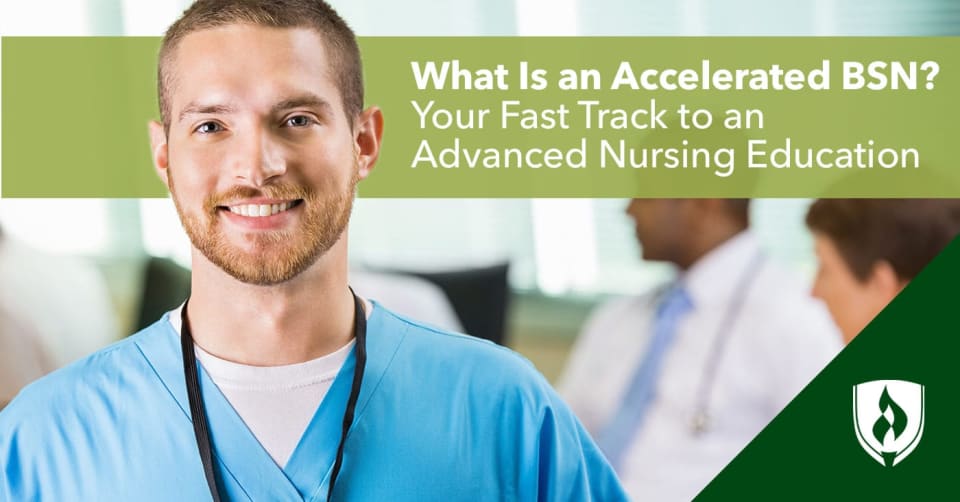
Entrance Requirements
At Rasmussen University Nursing school, there are no prerequisite courses and there are no wait lists at many campuses. High school verification documentation may be required.10
Students for the standard and second degree Accelerated BSN tracks will need to pass the TEAS entrance exam or have a conferred Bachelor’s, Master’s or Doctoral degree with a GPA of 2.25 or higher from an accredited institution of higher learning as recognized by the US Department of Education or by the Council for Higher Education Accreditation.
You only need to apply once, and you can begin your BSN classes when it’s convenient for you with our eight start dates a year. Speak to an admissions advisor for requirements related to your specific entry track.
What Should I Know Before I Enroll?
Nursing Information Sessions
To learn more about entrance requirements and receive help planning your career path, attend a Nursing Information Session where you’ll learn about:
- TEAS scores
- Background checks
- Immunizations
Already an RN? Our RN to BSN program is a post-licensure track that can be completed in as few as 12-18 months.2 Students interested in this option must possess a current unencumbered RN license.
BSN Program Outcomes
The baccalaureate degree program in nursing at Rasmussen University is accredited by the Commission on Collegiate Nursing Education (http://www.ccneaccreditation.org).
View Student Achievement Data below, which includes each campus' NCLEX-RN Pass Rate.
-
Bachelor of Science in Nursing Program
BSN Program Outcomes Rates at Rasmussen University campuses
Campus and Program NCLEX-RN Pass Rate 1a Campus and Program: Rasmussen University - Central Pasco Bachelor of Science in Nursing Program 9 NCLEX-RN Pass Rate 1a : 87.10% Campus and Program: Rasmussen University - Fort Myers Bachelor of Science in Nursing Program 9 NCLEX-RN Pass Rate 1a : 87.23% Campus and Program: Rasmussen University - Ocala Bachelor of Science in Nursing Program 9 NCLEX-RN Pass Rate 1a : 86.52% Campus and Program: Rasmussen University - Tampa Bay Bachelor of Science in Nursing Program 9 NCLEX-RN Pass Rate 1a : 82.35% Campus and Program: Rasmussen University - Overland Park Bachelor of Science in Nursing Program 9 NCLEX-RN Pass Rate 1a : 91.67% Campus and Program: Rasmussen University - Bloomington Bachelor of Science in Nursing Program 9 NCLEX-RN Pass Rate 1a : 93.08% Campus and Program: Rasmussen University - Fargo Bachelor of Science in Nursing Program 9 NCLEX-RN Pass Rate 1a : 84.38% - 1a NCLEX Pass Rate is based on First-Time Candidates taking the licensure exam in 2023.
Where Can I Find a Nursing School Near Me?
At Rasmussen University, we want our courses to be available for your schedule; not the other way around. Many of our programs are available on campus or online. Select programs are available for enrollment through a specific campus, but students complete the courses online and are able to utilize online and on-campus support and resources. Click below to find a hybrid on-campus and online BSN program near you.
Accreditation and Licensing Information
Commission on Collegiate Nursing Education (CCNE)
The baccalaureate degree program in nursing at Rasmussen University is accredited by the Commission on Collegiate Nursing Education.
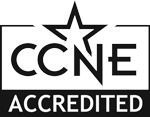 Commission on Collegiate Nursing Education
Commission on Collegiate Nursing Education
655 K Street, NW, Suite 750
Washington, DC 20001
202-887-6791
Higher Learning Commission (HLC)
Rasmussen University is accredited by the Higher Learning Commission (hlcommission.org), an institutional accreditation agency recognized by the U.S. Department of Education.
Licensing Information
The ABSN meets the educational requirements to apply for licensure as a registered nurse (RN) in Florida, Kansas, Minnesota, North Dakota and Wisconsin. Other eligibility requirements may apply; please verify your eligibility against your state’s board of nursing rules. This program may not meet the educational requirements for licensure as a nurse in states not listed above.
